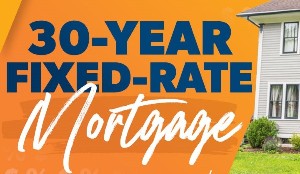
Here in New Zealand, the longest fixed-rate term is generally five years.
Why the difference?
Luke Jackson heads the New Zealand branch of the home loans finance company Resimac. He said 30 year fixed-interest mortgages should definitely be tried in New Zealand.
He said they should be doable, with banks or finance companies that offered them protecting their exposure with a 30-year hedge contract with a wholesale money supplier.
But this has not been done. No bank is even interested in offering 30-year fixed terms.
Some banks tried offering seven-year fixed mortgages but withdrew them because they did not attract enough custom.
One banking professional blamed the problem on “thin” money markets in this country.
“Banks in New Zealand cannot get access to the level of wholesale finance that you would need to cover your 30-year risk,” the expert said.
A banking authority from Massey University, David Tripe, said longer, fixed-rate mortgages were basically not wanted by borrowers in this country.
But a New Zealander who spent two decades in the US real estate industry said 30-year fixed-interest loans in America were the norm.
Richard Peach of Hastings said these loans had real benefits for borrowers, who knew exactly how much money would go out on their mortgage each month. Despite getting that certainty, they were not locked into the scheme, and could leave if they wanted to.
“If the (interest) rate had gone down, we could have borrowed from another institution, or even the same one possibly, and paid off our principal and kept the payments going at a
lower level,” Peach said.
“It was a highly flexible and desirable system.”
Banks in the US routinely offer 30 year fixed-rate mortgages. For example, Citibank has recently offered one at 6.875%, which was either slightly higher or moderately higher than
adjustable rates, depending on their length of term.
Peach said in some cases, 30 year fixed-rate mortgages were protected by an extra layer of insurance on top of normal hazard insurance. But this was not universal, and varied depending on the size of the deposit.
Extra protections in the US are Federal involvement in mortgages in some cases, or securitisation of mortgages which brings in other investors to share the risk and share the
the benefits. All these factors combined to make 30-year fixed mortgages realistic for banks as well as for borrowers.
But Tripe was sceptical of this sort of hedging working in New Zealand.
“The market (for hedge contracts) would be very illiquid, it would be tricky to get the hedges, and because customer demand has been quite limited for these longer loans, it has
not been worth the banks' while to go around trying to hedge.
“The other thing with a fixed-rate 30 year mortgage is that it is a table mortgage,” Tripe Said.
“That means the principal is reducing all the time. And that means the amount you have to hedge is changing all the time and that is quite difficult to construct.”
An extra problem in New Zealand would be the need for international financing of a hedge contract to protect a 30 year mortgage.
John Kensington is head of banking and finance at KPMG and conducts regular analysis of the banking and non-bank lending sector. He says banks source 60% to 65% of their money offshore for onlending in New Zealand.
“They have got to manage that risk and if people wanted to fix their mortgage rate for even 15 years, the bank would have to use some form of derivative (to protect it),” Kensington
Said.
“And there is not a deep market for banks to be able to lay off the risk at the other side.”
Kensington added an extra complication would arise from overseas hedging of a long term fixed loan. This would stem from fluctuating exchange rates which could make the value of the New Zealand dollar fall, and that would make calculation of an effective hedge even harder to achieve than it would be within one country.
Anyway, is the absence of a 30 year fixed-rate mortgage a problem for people at the mortgage coal face? Not according to Bruce Patten of Loan Market.
“It's not the done thing in New Zealand.” he said.
“There is enough flexibility (with the range of mortgage options) in New Zealand. Not many people go for a five-year mortgage unless they are an investor.”
In other words, Patten has found people not even being interested in the longer term mortgage available under present conditions,
So, if they don't even want five year mortgages, why bother with 30?



Comments
No comments yet.
Sign In to add your comment